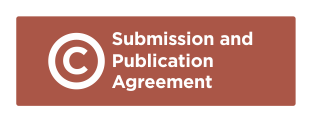Clean Cooking and the Rice Cooker Programme
An Evaluation and Policy Perspective
Keywords:
clean cooking, energy consumption, LPG subsidy reduction, rice cooker programmeAbstract
Clean cooking is a critical agenda for enhancing access to clean energy in developing nations. In 2023–2024, the Indonesian government implemented a programme to distribute free rice cookers to underprivileged communities, yet this initiative has not previously been evaluated. This study addresses that gap by examining the impact of the rice cooker distribution on household energy consumption and LPG dependency. While several studies have assessed clean cooking programmes—such as biogas, induction, solar-powered stoves, and electric pressure cookers—this research is among the first to evaluate a rice cooker programme in a large-scale field setting, thereby offering novel insights and contributing to the literature on the clean energy transition. A Slovin sampling strategy selected 600 respondents from among 342,621 households across 36 provinces with a margin of error of approximately 4.1%. Primary data were analysed using descriptive statistics, including frequency distributions and cross-tabulations, alongside inferential methods such as ordered logistic regression to investigate the determinants of satisfaction of this program and also t-tests to compare electricity consumption and LPG usage before and after receiving the rice cooker. In addition, secondary data comprising 5,814,476 records on monthly electricity consumption from January 2023 to May 2024 were utilised. Our evaluation reveals that the free rice cooker programme has led to a significant increase in per capita electricity consumption and a corresponding reduction in LPG consumption and subsidies. Although household electricity bills have risen, most respondents report that the efficiency and convenience of the rice cooker offset these additional costs. These findings support the further expansion and continual evaluation of such clean cooking initiatives, enhancing energy resilience in Indonesia and other developing countries.
Downloads
References
Ahadi, K., Al Irsyad, M. I., & Anggono, T. (2018). Simulasi potensi penghematan energi listrik pada penerangan jalan umum dengan menggunakan teknologi lampu LED. Jurnal Ketenagalistrikan dan Energi Terbarukan, 17(1), 31-42. https://garuda.kemdikbud.go.id/documents/detail/953697
Akpalu, W., Dasmani, I., & Aglobitse, P. B. (2011). Demand for cooking fuels in a developing country: To what extent do taste and preferences matter? Energy Policy, 39(10), 6525-6531. https://doi.org/https://doi.org/10.1016/j.enpol.2011.07.054
Al Irsyad, M. I., Anggono, T., Anditya, C., Ruslan, I., Cendrawati, D. G., & Nepal, R. (2022). Assessing the feasibility of a migration policy from LPG cookers to induction cookers to reduce LPG subsidies. Energy for Sustainable Development, 70, 239-246. https://doi.org/https://doi.org/10.1016/j.esd.2022.08.003
Al Irsyad, M. I., Halog, A., & Nepal, R. (2019). Smart grid technology for energy conservation in street lights: lesson learnt from six years’ operation in Indonesia. 2019 International Conference on Technologies and Policies in Electric Power & Energy,
Anggono, T., Nepal, R., Liu, Y., Al Irsyad, M. I., & Taghizadeh-Hesary, F. (2021). Financing of energy efficiency in public goods: the case of street lighting systems in Indonesia. In Energy efficiency financing and market-based instruments (pp. 243-261). Springer. https://doi.org/https://doi.org/10.1007/978-981-16-3599-1_11
Anggono, T., Ruslan, I., Anditya, C., Cendrawati, D. G., & al Irsyad, M. I. (2022). Assessing the feasibility of migration policy from LPG stoves to induction stoves in Indonesia. IOP Conference Series: Earth and Environmental Science.
Atmowidjojo, A. C., Suryani, S., Nugroho, Y. B., & Rianawati, E. (2022). Cooking Practices in Institutional Settings in Indonesia and Cambodia. RDI. https://mecs.org.uk/wp-content/uploads/2022/08/Cooking-Practices-in-Institutional-Settings-in-Indonesia-Cambodia.pdf
Batchelor, S., Brown, E., Scott, N., & Leary, J. (2019). Two birds, one stone—reframing cooking energy policies in Africa and Asia. Energies, 12(9), 1591. https://doi.org/https://doi.org/10.3390/en12091591
Berlian, A., Al Irsyad, M. I., Emo, S., Widyanto, P., Fitarto, T. A., & Aman, M. (2014). Analisis potensi penghematan energi penerangan jalan umum Kota Surakarta dan Kota Bandung. Ketenagalistrikan dan Energi Terbarukan, 13(1), 1-14. https://www.semanticscholar.org/paper/ANALISIS-POTENSI-PENGHEMATAN-ENERGI-PENERANGAN-UMUM-Berlian-Irsyad/840982deee83769f1e5829606aeb598c12ab51ac
Cang, V. (2022). Rice Cooking in Japan. The development of the rice cooker and the vagaries of rice consumption in Japan. e-Phaïstos. Revue d’histoire des techniques/Journal of the history of technology, X(1), 18. https://doi.org/https://doi.org/10.4000/ephaistos.9820
Chen, Y.-T. (2017). The factors affecting electricity consumption and the consumption characteristics in the residential sector—A case example of Taiwan. Sustainability, 9(8).
Clements, W., Silwal, K., Pandit, S., Leary, J., Gautam, B., Williamson, S., Tran, A., & Harper, P. (2020). Unlocking electric cooking on Nepali micro-hydropower mini-grids. Energy for Sustainable Development, 57, 119-131. https://doi.org/https://doi.org/10.1016/j.esd.2020.05.005
Daioglou, V., Van Ruijven, B. J., & Van Vuuren, D. P. (2012). Model projections for household energy use in developing countries. Energy, 37(1), 601-615. https://doi.org/https://doi.org/10.1016/j.energy.2011.10.044
Foran, T., du Pont, P. T., Parinya, P., & Phumaraphand, N. (2010). Securing energy efficiency as a high priority: scenarios for common appliance electricity consumption in Thailand. Energy Efficiency, 3(4), 347-364. https://doi.org/10.1007/s12053-009-9073-7
Fracassetti, D., Pozzoli, C., Vitalini, S., Tirelli, A., & Iriti, M. (2020). Impact of cooking on bioactive compounds and antioxidant activity of pigmented rice cultivars. Foods, 9(8), 967. https://doi.org/https://doi.org/10.3390/foods9080967
Hesty, N. W., Cendrawati, D. G., Nepal, R., & Al Irsyad, M. I. a. (2021). Energy potential assessments and investment opportunities for wind energy in Indonesia. CAMA Working Paper No. 31/2021. https://ssrn.com/abstract=3811064
Huh, S.-Y., Jo, M., Shin, J., & Yoo, S.-H. (2019). Impact of rebate program for energy-efficient household appliances on consumer purchasing decisions: The case of electric rice cookers in South Korea. Energy Policy, 129, 1394-1403. https://doi.org/https://doi.org/10.1016/j.enpol.2019.03.049
Kafle, S., Mishra, A. K., Maharjan, A., & Panday, A. K. (2019). Moving from fossil fuels to electric cooking: An option for clean cooking access in Nepal. Journal of the Institute of Engineering, 15(3), 159-162. https://doi.org/https://doi.org/10.3126/jie.v15i3.32174
Kizilcec, V., Perros, T., Bisaga, I., & Parikh, P. (2022). Comparing adoption determinants of solar home systems, LPG and electric cooking for holistic energy services in Sub-Saharan Africa. Environmental Research Communications, 4(7), 072001. https://doi.org/https://doi.org/10.1088/2515-7620/ac7f23
Matinga, M. N., Gill, B., & Winther, T. (2019). Rice cookers, social media, and unruly women: Disentangling electricity's gendered implications in rural Nepal. Frontiers in Energy Research, 6, 140. https://doi.org/https://doi.org/10.3389/fenrg.2018.00140
Murray, D., Stankovic, L., Stankovic, V., & Espinoza-Orias, N. (2018). Appliance electrical consumption modelling at scale using smart meter data. Journal of cleaner production, 187, 237-249. https://doi.org/https://doi.org/10.1016/j.jclepro.2018.03.163
Nurliyanti, V., Ahadi, K., Muttaqin, R., Pranoto, B., Srikandi, G. P., & Al Irsyad, M. I. (2021). Fostering rooftop solar PV investments toward smart cities through e-SMART PV. 2021 5th International Conference on Smart Grid and Smart Cities (ICSGSC).
Poblete-Cazenave, M., Pachauri, S., Byers, E., Mastrucci, A., & van Ruijven, B. (2021). Global scenarios of household access to modern energy services under climate mitigation policy. Nature Energy, 6(8), 824-833. https://doi.org/https://doi.org/10.1038/s41560-021-00871-0
Pramudya, Al Irsyad, M. I., Phoumin, H., & Nepal, R. (2024). The role of battery energy storage systems and market integration in Indonesia’s zero emission vision. In Large-scale development of renewables in the ASEAN: Economics, technology and policy (pp. 121-143). Springer. https://doi.org/https://doi.org/10.1007/978-981-99-8239-4_6
Rosati, F., & Faria, L. G. D. (2019). Business contribution to the sustainable development agenda: Organizational factors related to early adoption of SDG reporting. Corporate social responsibility and environmental management, 26(3), 588-597. https://doi.org/https://doi.org/10.1002/csr.1705
Saha, A., Razzak, M. A., & Khan, M. R. (2021). Electric cooking diary in Bangladesh: Energy requirement, cost of cooking fuel, prospects, and challenges. Energies, 14(21), 6910. https://doi.org/https://doi.org/10.3390/en14216910
Sánchez-Jacob, E., González-García, A., Mazorra, J., Ciller, P., Lumbreras, J., & Pérez-Arriaga, J. I. (2021). Joint optimal planning of electricity and modern energy cooking services access in Nyagatare. Energies, 14(14), 4093. https://doi.org/https://doi.org/10.3390/en14144093
Stephanie, E., & Widowati, S. (2022). Effect of Cooking Methods on The Physicochemical and Organoleptic Properties of Inpari IR Nutrizinc and Inpari 45 rice varieties. IOP Conference Series: Earth and Environmental Science.
Wang, M.-T. (2013). The investigation of development on rice cooking in Taiwan. Journal of Design Research, 11(3), 203-224. https://doi.org/https://doi.org/10.1504/JDR.2013.056580
Downloads
Published
How to Cite
Issue
Section
License
Copyright (c) 2025 Dedi Suntoro, Wahid Pinto Nugroho, Darmaji, Fuad Hadiyanto, Priyono, Alan Ray Farandy, Hazan Azhari Zainuddin, Nurry Widya Hesty, Paber Sinaga, Lutfi Norhadi, Nanto Sriyanto

This work is licensed under a Creative Commons Attribution-NonCommercial 4.0 International License.













